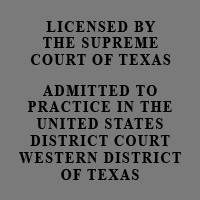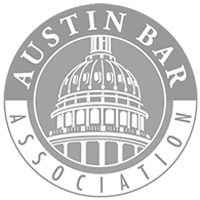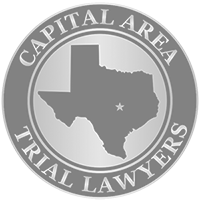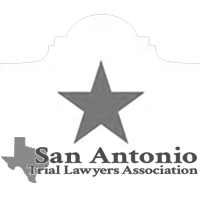SEC Whistleblower Lawyer Confidentially Works With SEC Whistleblowers To Anonymously Expose SEA Violations and Other Illegal Conduct To Initial SEC Enforcement Actions and Claim Financial Rewards
SEC whistleblower lawyer, Jason S. Coomer, works with SEC whistleblowers to expose securities fraud, insider trading, and other securities investment fraud schemes. He offers free confidential reviews of anonymous whistleblower reward cases. He commonly represents whistleblowers from throughout the world. If you are aware of significant SEC violations or other illegal conduct, please feel free to contact SEC Whistleblower Lawyer Jason Coomer. Our office uses secure encrypted e-mail communications from our server. Additionally, we encourage all potential clients to use secure e-mail and devices to submit any inquiries. We also have a secure submission form. Further, as a Securities Exchange Commission Whistleblower Lawyer, we provide confident reviews of SEC whistleblower reward cases and protect any information sent to us for review.
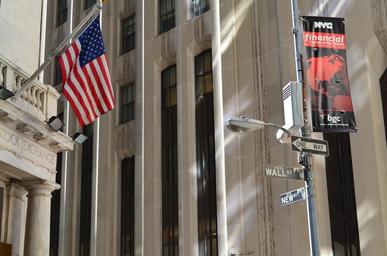
SEC Whistleblower Lawyer Helps SEC Whistleblowers Submit Anonymous Information to the SEC
The 2010 Dodd-Frank Act authorized the whistleblower program to reward individuals who offer high-quality original information that leads to an SEC enforcement action in which more than $1 million in sanctions is ordered. Awards can range from 10 percent to 30 percent of the money collected. The Dodd-Frank Act included enhanced anti-retaliation employment protections for whistleblowers and provisions to protect their identity. The law specifies that the SEC cannot disclose any information, including information the whistleblower provided to the SEC, which could reasonably be expected to directly or indirectly reveal a whistleblower’s identity.
Recent SEC Enforcement Actions
The Securities and Exchange Commission announced that Bausch Health, formerly Quebec, Canada-based Valeant Pharmaceuticals, agreed to pay a $45 million penalty to settle charges of improper revenue recognition and misleading disclosures in SEC filings and earnings presentations. Three former executives – the chief executive officer, chief financial officer, and controller – also agreed to pay penalties to settle charges against them. (7/31/2020)
The Securities and Exchange Commission announced that it obtained court approval of settlements with Telegram Group Inc. and its wholly owned subsidiary TON Issuer Inc. to resolve charges that Telegram's unregistered offering of digital tokens called "Grams" violated the federal securities laws. The defendants agreed to return more than $1.2 billion to investors and to pay an $18.5 million civil penalty. (6/26/2020)
The Securities and Exchange Commission announced that Novartis AG, a global pharmaceutical and healthcare company headquartered in Basel, Switzerland, agreed to pay over $112 million to settle charges that it violated the books and records and internal accounting controls provisions of the Foreign Corrupt Practices Act (FCPA). The SEC's order finds that local subsidiaries or affiliates of Novartis or its former subsidiary Alcon Inc. engaged in schemes to make improper payments or to provide benefits to public and private healthcare providers in South Korea, Vietnam, and Greece in exchange for prescribing or using Novartis or Alcon products. According to the order, these schemes took place between 2012 and 2016 and were known among certain managers of the local subsidiaries or affiliates. The order also finds that Novartis lacked sufficient internal accounting controls within its former Alcon business in China from 2013 to 2015, which used forged contracts as part of local financing arrangements that generated large losses and resulted in Novartis and Alcon writing off more than $50 million in bad debt. (6/25/2020)
Other SEC Enforcement Actions
The Securities and Exchange Commission charged blockchain services company BitClave PTE Ltd. headquartered in San Jose, California, for conducting an unregistered initial coin offering (ICO) of digital asset securities. BitClave agreed to settle the charges by returning proceeds from the offering and paying additional monetary relief to be distributed to investors through a Fair Fund. (5/28/2020)
The Securities and Exchange Commission charged William Sadleir, the owner of a film distribution company, for defrauding a publicly traded fund of at least $13.8 million. The SEC alleged that BlackRock Multi-Sector Income Trust (BIT), a registered closed-end management investment company, invested approximately $75 million in Aviron Group LLC, a film distribution company founded, owned, and operated by Sadleir. The complaint alleges that Sadleir represented that the investments would be used to support the company’s distribution of films. Contrary to these representations, Sadleir allegedly used a sham company as a vehicle to fraudulently divert and misappropriate BIT funds and issued fake invoices seeking BIT funds for services that were never provided. Sadleir allegedly used the funds to pay personal expenses, including his purchase, furnishing, and renovation of a Beverly Hills mansion. (5/22/2020)
The Securities and Exchange Commission today announced charges against Praxsyn Corp. and its CEO for allegedly issuing false and misleading press releases claiming the company was able to acquire and supply large quantities of N95 or similar masks to protect wearers from the COVID-19 virus. The SEC previously issued an order on March 26 temporarily suspending trading in the securities of Praxsyn. (4/28/2020)
Older SEC Enforcement Actions
The Securities and Exchange Commission charged California-based Wells Fargo & Co. for misleading investors about the success of its core business strategy at a time when it was opening fake accounts for unknowing customers and selling unnecessary products that went unused. Wells Fargo has agreed to pay $500 million to settle the charges, which will be returned to investors. The $500 million payment is part of a combined $3 billion settlement with the SEC and the Department of Justice. (2/21/2020)
The Securities and Exchange Commission announced that Paris-based pharmaceutical company Sanofi has agreed to pay more than $25 million to resolve charges that its Kazakhstan and the Middle East subsidiaries made corrupt payments to win business. According to the SEC’s order, the schemes spanned multiple countries and involved bribe payments to government procurement officials and healthcare providers in order to be awarded tenders and to increase prescriptions of its products. In Kazakhstan, distributors were used as part of a kickback scheme to generate funds from which bribes were paid to officials to ensure that Sanofi was awarded tenders at public institutions. The kickbacks were tracked in internal spreadsheets where they were coded as “marzipans.” In the Middle East, various pay-to-prescribe schemes were used to induce healthcare providers to increase their prescriptions of Sanofi products. (9/4/2018)
Other Large SEC Enforcement Actions
The SEC charged Mizuho Securities USA, the U.S. subsidiary of Japan-based Mizuho Financial Group and three former employees with misleading investors in a CDO by using “dummy assets” to inflate the deal’s credit ratings while the housing market was showing signs of severe stress. The SEC also charged the deal’s collateral manager and portfolio manager. Mizuho agreed to pay $127.5 million to settle the charges, and the others also agreed to settlements. (7/18/12)
The SEC charged J.P. Morgan Securities with misleading investors in a complex mortgage securities transaction just as the housing market was starting to plummet. J.P. Morgan agreed to pay $153.6 million in a settlement that enables harmed investors to receive all of their money back. (6/21/11)
The SEC charged Goldman Sachs with defrauding investors by misstating and omitting key facts about a financial product tied to subprime mortgages as the U.S. housing market was beginning to falter. (4/16/10) Goldman Sachs settled charges and agreed to pay record penalty in $550 million settlement and reform its business practices. (7/15/10)
The SEC charged Citigroup's principal U.S. broker-dealer subsidiary with misleading investors about a $1 billion CDO tied to the housing market in which Citigroup bet against investors as the housing market showed signs of distress. The proposed settlement would require a payment of $285 million by Citigroup that would be returned to harmed investors. (10/19/11)
SEC Fraud Whistleblower Bounty Actions Are Designed to Expose Significant SEC Violations and Provide Large Financial Rewards For People That Are The Original Source of Information That Expose The Fraud Against The SEC
SEC Fraud Whistleblower Lawsuits or SEC Bounty Actions are a product of the enactment of the Dodd-Frank Wall Street Reform and Consumer Protection Act. These laws were designed to create bounties that can be collected by whistleblowers that properly report SEC violations, financial fraud, securities fraud, commodities fraud, and stimulus fraud that result in monetary sanctions over one million dollars ($1,000,000.00). The SEC can award the whistleblower up to 30% of the money collected.
By creating whistleblower bounties for investors and people with specific information of fraud, it is expected that hard to detect fraud will be exposed to help regulate the financial market and prevent large investment corporations, banks, hedge funds, and other large corporations from committing financial fraud of billions of dollars.
Securities Fraud Whistleblower Lawsuit Information, SEC Whistleblower Incentive Program Lawsuit Information, Financial Fraud Derivatives Lawsuit Information, Financial Fraud Whistleblower Lawsuit Information, & Financial Fraud Bounty Lawsuit Information
Securities fraud, also known as stock fraud and investment fraud, is the unlawful practice of inducing investors to make investment decisions on the basis of false information, frequently resulting in losses, in violation of the securities laws. Securities fraud whistleblower lawsuits include deceptive practices in the stock and commodity markets, and occur when investors are enticed to part with their money based on fraudulent misrepresentations.
Securities fraud whistleblower lawsuits include outright theft from investors and misstatements on a public company's financial reports as well as a wide range of other actions, including insider trading, front running and other illegal acts on the trading floor of a stock or commodity exchange. Evidence for a securities fraud whistleblower lawsuit may include:
-
False or misleading information on a company's financial statement;
-
False or misleading information on Securities and Exchange Commission (SEC) filings;
-
Lying to corporate auditors;
-
Insider trading;
-
Stock manipulation schemes;
-
Embezzlement by stockbrokers;
-
Manipulation of a security’s price or volume;
-
Fraudulent or unregistered offer or sale of securities, including Ponzi schemes, high yield investment programs or other investment programs;
-
Brokerage Account and Retirement Account Fraud;
-
False or misleading statements about a company;
-
Failure to file required reports with the SEC;
-
Abusive naked short selling;
-
Theft or misappropriation of funds or securities;
-
Fraudulent conduct or other problems associated with municipal securities transactions or public pension plans; and
-
Bribery of foreign officials
Through new legislation the federal government is offering financial incentives to securities fraud whistleblowers and other financial fraud whistleblowers to step up and blow the whistle on properly reporting financial fraud including the above listed forms of securities fraud that lead to SEC violations and fines. These new whistleblower bounties can be collected by whistleblowers that properly report SEC violations, financial fraud, securities fraud, commodities fraud, and stimulus fraud.
Other forms of SEC Violations including reporting problems with a brokerage or advisory account; fraudulently preventing access to funds or securities; fraudulent order handling, trade execution, or confirmations; fraudulent fees, mark-ups or commissions; and inaccurate or misleading disclosures by financial professionals, may also lead to potential SEC bounties, if the fraudulent acts result in fines of over $1 million and are properly reported.
SEC Whistleblower Lawyer Helps Anonymous SEC Whistleblowers Report Illegal Conduct That Initiates SEC Enforcement Actions and Pay Large Financial Rewards
As a SEC Whistleblower Lawyer, Jason S. Coomer, commonly works with other anonymous whistleblowers to anonymously report illegal conduct to the SEC. As such, he commonly works with a variety of professionals and investors. He also commonly co-counsels with other SEC Whistleblower Lawyers from throughout the United States and World. For more information, please feel free to contact SEC Whistleblower Lawyer Jason Coomer via e-mail message
Feel Free to Contact Us with any Questions
Associations
